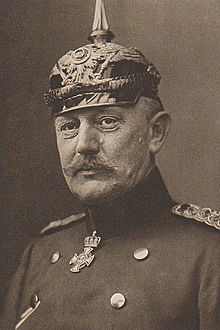by Richard van Pelt, WWI Correspondent
The headlines from Tuesday’s Capital Journal:
OPTIMISM PREVAILS IN BERLIN
Official Points Out Work of German Vessels and England’s Inactivity
ASSERTS TURKEY WILL SOON ATTACK RUSSIA
Also Claims Turks Will fight England On Account of Loss of Egypt
CLAIM GERMANY AT END OF RESOURCES, ALL RESERVES OUT
This Claim Is Based on the Large Number of Reserves Among Prisoners
FIGHTING IS FIERCE BUT IS NOT DECISIVE
German Movement Indicates Intent to Destroy Railroad to Brussels
IMPORTANT GAINS MADE BY GERMANS – ALLIES GIVE WAY
While There Is Nothing Decisive in This It Shows Germans Are Strong
BATTLES IN RUSSIA ARE ONLY “FEELERS”
Instead of Russians Opening Way to Berlin, Have Not Reached Cracow
GERMANS GAINING AT AISNE
Both Right and Left Wings Vigorously Offensive in Today’s Fight
LONDON WAR BUREAU IS GLUMLY SILENT
Germans Taunt Americans with Losing Trade Through England’s “Piracies”
The headline, “Germans Taunt Americans” noted that American commerce was losing one and a half billion dollars in trade through what the German government called “piratical” British interference with neutral shipping.
 The front page also reported the removal of Helmuth von Moltke as Chief of the German General Staff. Despite the headlines, the German strategy contemplated that Germany would swiftly overrun and defeat France. This did not happen. The paper’s headline reported that von Moltke was removed from his position “On Account of His Christian Science Views.” The article relayed rumors “that his military associates had indulged in much criticism of the Christian Science views as inappropriate to his profession.” He was for his inability to prosecute the war, not for his religious views. A letter published in the New York Times, explains that there were two branches of the family, and that the German commander in chief was not a Christian Scientist.
The front page also reported the removal of Helmuth von Moltke as Chief of the German General Staff. Despite the headlines, the German strategy contemplated that Germany would swiftly overrun and defeat France. This did not happen. The paper’s headline reported that von Moltke was removed from his position “On Account of His Christian Science Views.” The article relayed rumors “that his military associates had indulged in much criticism of the Christian Science views as inappropriate to his profession.” He was for his inability to prosecute the war, not for his religious views. A letter published in the New York Times, explains that there were two branches of the family, and that the German commander in chief was not a Christian Scientist.
The editor comments on giving away that which you do not yet possess:
The big fellows over in Europe are anticipating Christmas and doing it in a truly royal way. The kaiser has offered to give Gibraltar to Spain; England has tendered the gift of the Kiel canal to Denmark; Russia has offered Transylvania to Italy and also promised freedom to Poland. All this, it will be seen, is giving away other folks; property, except in the case of Poland, and that promise has a string on it. It is also noted that Christmas is still a long way off, and by the time it gets here the fellows promised things may have no stockings to get them in.
The diplomatic term for such exchanges is “desiderata.” With the eventual entry of the Ottoman Empire into the war, those desiderata (or “the great loot” as it was called at the time) would eventually lead to our embroilment in Iraq and the Middle East.
For readers wishing to read more about the link between events in the Middle East in World War I and today’s headlines, I recommend Scott Anderson’s superbly written and readable Lawrence in Arabia: War, Deceit, Imperial Folly and the Making of the Modern Middle East.







Leave A Comment